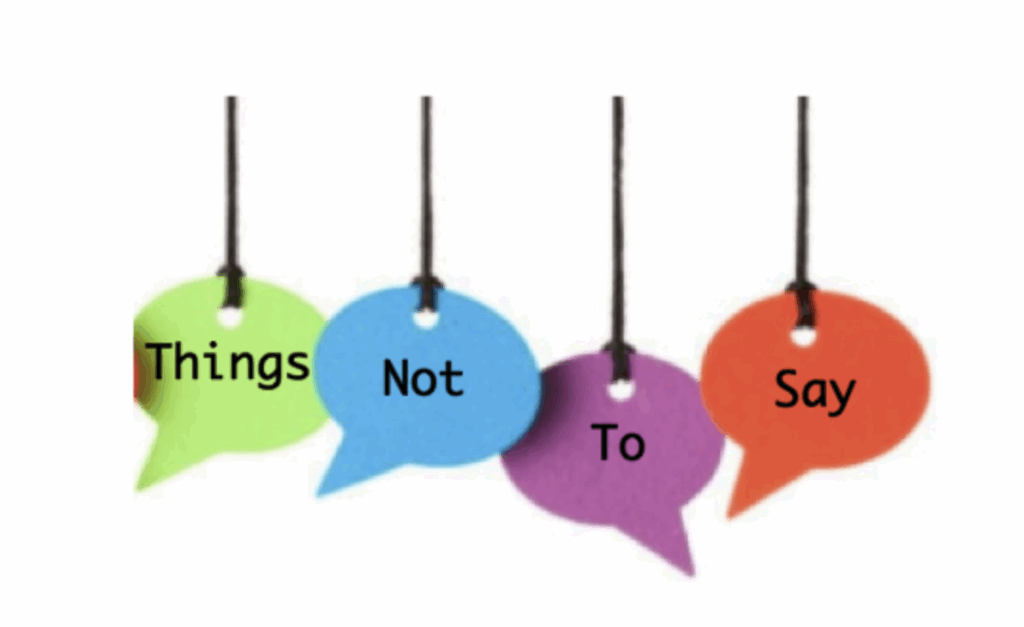
time thinking about what NOT TO DO. Don’t arrive late or too early. Don’t leave our mobile phone on. Don’t dress too casual. Don’t be clueless about the organization. Don’t interrupt. . . .
We knew that by doing these things we would disqualify ourselves. Hence we would likely not get a second chance to prove to the recruiter that we are not silly, unprepared or too scared about the interview.
But it’s not only what we do or not do, that can ruin our chances of getting hired. It’s also what we say and things NOT TO SAY.
In this article, we share three of the things you should try to avoid saying during an interview, with tips of things you can say instead. Of course, there several other thinks that should not be said. But let’s focus on these 3 major ones.
“It’s on my CV”
Even if the answer to the interviewer’s question may clearly written and visible on your CV, you should anyway answer. Otherwise, you risk to come off as arrogant, rude or not familiar with your own work experience. In fact, most recruiters do read the application documents they receive. But they may simply be looking for some additional details, or want to hear it from you, how you will say it.
So, try to answer the question in your own words, including some specific examples that prove your experience or skills. Explain how your qualifications are relevant to the job and what you bring to the organization. This will also demonstrate your communication skills.
“My former manager was a real . . . .”
Bad mouthing your former employer? Don’t even think about it! You never denigrate your former manager or the company you were working with. Doing it will give a bad image of you, not of them.
It will show that you are not a discreet person. That you may have difficulties in integrating in the new team, and that you may be difficult to manage. In addition – no matter whether you were a good leaver or a bad one, if you were fired or you separated – the interviewer may assume that you tend to lay the blame on others. Hence that you lack of ability to cope with a challenging situation and move past it.
The recruiter may even worry that you’ll badmouth them in the future, maybe already in your 2nd interview.
Possibly and if appropriate, you may simply say that there were some disagreements. No need to say more.
“I don’t have any question”
Having questions prepared for your interview is almost as important as being able to answer the questions you will be addressed.
Not having prepared a set of points to inquiry about at the end of the interview may be perceived as a lack of interest for the organization and for the job. Even if all seams clear to you, consider asking some elucidation about your mission, challenges to expect in the job, the life in the organization, what your interlocutor appreciates the most in the company’s culture or in her job, how decisions are taken, etc.
On the other hand, be careful not to ask about salary and social benefits. It’s up to the interviewer to bring this to the table and usually in your 2nd interview.
